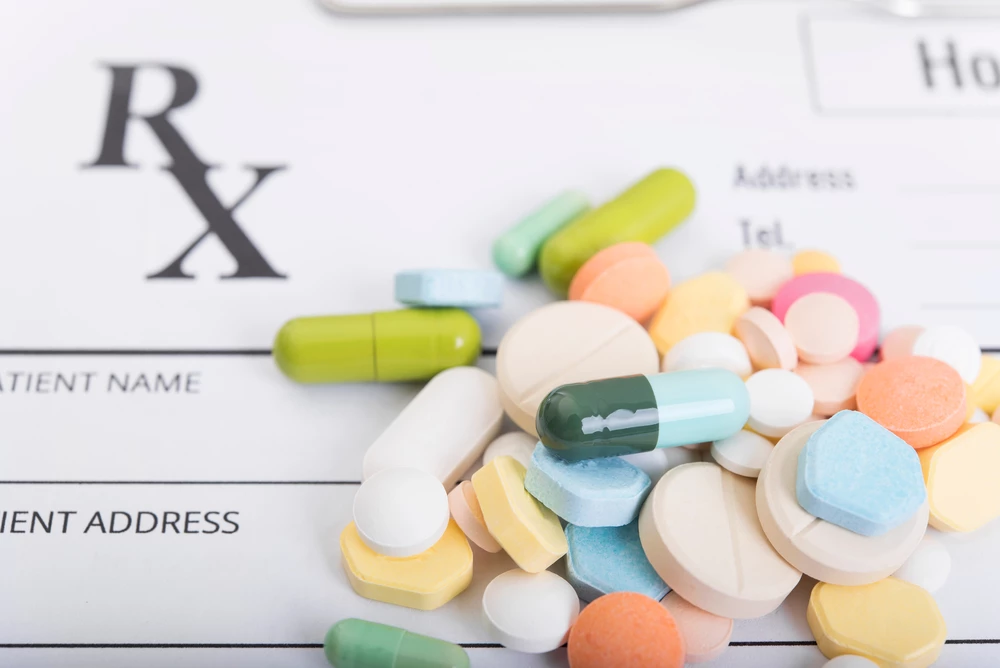Prescription drug addiction is an increasingly common issue that impacts people from all walks of life. Whether they are obtained from a doctor or a dealer, prescription medications have the potential to lead to dependence and addiction over time. Prescription drug misuse – a term that encapsulates everything from borrowing a friend’s sleeping medication to chopping up and snorting pills for a stronger experience – is a growing danger.
While these medications are prescribed for valid therapeutic reasons, their misuse often comes from a widespread belief that they are safer than illicit drugs. The truth is, when used in ways not intended by the prescriber, these medications can be just as dangerous. In the past year alone, millions of people have reportedly engaged in this substance use disorder practice, and thousands have died.
The progression from mere misuse to full-blown addiction is subtle yet insidious. With the advent of counterfeit prescription pills containing fentanyl, which can be deadly, early recognition and intervention can be a matter of life and death.
If you’re considering stopping the use of your prescription medication or any substance, it’s vital to seek medical advice. Please don’t cease its use without the support and guidance of professionals; it can be extremely dangerous to self-detox from any substance.
Overview: What Is Prescription Drug Addiction?
Prescription drug addiction occurs when someone is unable to control their use of a medication, even if it causes harm. This can involve:
- Taking a higher dosage than prescribed.
- Taking it more often than directed.
- Obtaining extra prescriptions illegally.
- Using it not as directed, i.e. snorting or injecting it.[1]
Like other addictions, prescription drug addiction stems from dependence on the effects of the drug (whether physical, psychological, or both). We feel unable to exist without the medication and crave the feelings it provides, and certain drugs, such as opioids, change the physical landscape of our brains, resulting in unpleasant withdrawal symptoms if we try to stop on our own.
A few categories of prescription drugs have become notably problematic due to misuse and addiction:
- Opioids: Used to treat pain. Common examples are OxyContin, Vicodin, and codeine.
- Stimulants: Used to manage ADHD and similar conditions. Drugs in this category include Adderall, Ritalin, and Concerta.
- Benzodiazepines: Aimed to treat anxiety and sleep disorders. Examples include drugs like Xanax, Valium, and Ambien.
[1] Resource: https://www.ingentaconnect.com/content/ben/cdar/2008/00000001/00000003/art00002
Causes and Risk Factors for Prescription Drug Addiction
Several factors come into play when that can raise the risk of us becoming addicted to prescription drugs, including:
- Genetics: A family history of substance use or addiction may increase susceptibility to developing a similar dependency.[2]
- Existential Life Events: Often, people may seek medical help for various life challenges such as accidents, chronic pain from injuries, anxiety from major life changes, grief due to loss, sleep disorders, or severe stress. In these situations, doctors may prescribe medications such as pain relievers, tranquilisers, or sleeping pills. While these prescriptions often come from a genuine place of wanting to provide relief, without proper monitoring or understanding, their use can lead to misuse and eventual addiction.
- Mental Health Disorders: Those with conditions such as anxiety, depression, PTSD, or chronic pain are vulnerable to self-medicating their existing symptoms.[3]
- Lack of Knowledge: The misconception that doctor-prescribed medications are always safe can lead to unintended misuse.
- Ease of Access: With prescription drugs sometimes more accessible than illicit drugs, they can become an attractive option for misuse.
- Previous Experiences With Substance Use: This includes alcohol and can heighten the risk of prescription drug addiction. The younger someone is when they start using, the higher their risk of later addiction.
Prescription drug addiction does not discriminate based on gender, income level, race, or other factors – it can impact anyone who regularly takes them. No single cause leads someone to become addicted to prescription drugs; a combination of biological, psychological, and lifestyle factors increases our vulnerability.

[2] Resource: https://www.nature.com/articles/s41386-021-01209-w
[3] Resource: https://www.biologicalpsychiatryjournal.com/article/S0006-3223(04)00769-3/fulltext
Signs and Symptoms of Prescription Drug Addiction
Recognising the physiological symptoms associated with prescription drug addiction can help us identify problems early. Each class of drug has a set of distinct symptoms that can hint at misuse:
Opioids (Prescription Painkillers)
- Constipation: A common side effect of opioid use.
- Slowed Breathing Rate: Opioids suppress the respiratory system.
- Drowsiness or Sedation: Users might appear more tired or lethargic than usual.
- Mood Fluctuations: Rapid mood swings, especially uncharacteristic euphoria.
- Reduced Social Interaction: Pulling away from family and friends.
- Nausea or Vomiting: This is particularly likely just after taking the drug.
- Itchy Skin: Users might scratch or pick at their skin more frequently.
- Lowered Immunity: Falling ill more often than usual.
- Constricted Pupils: Eyes may appear hooded with tiny pinprick pupils.
- Confusion or Disorientation: Difficulty keeping track of time or place.
Stimulants
- Increased Alertness: Heightened energy and perceived reduced need for sleep.
- Weight Loss: Loss of appetite can lead to people suddenly shedding weight.
- Excessive Sweating: Even without physical exertion.
- Rapid Talking: Along with increased hyperactivity.
Benzodiazepines (Depressants)
- Memory Issues: Forgetfulness or misplacing items frequently.
- Coordination Problems: Stumbling, clumsiness, or being unsteady on feet.
- Slurred Speech: Speaking slowly or struggling to form coherent sentences.
- Reduced Concentration: Tasks may take longer or be left unfinished.
- Respiratory Issues: Breathing may become slow or shallow.
This list is not exhaustive, and it’s essential to always stay vigilant, particularly when a loved one is prescribed medication. Symptoms can manifest differently for everyone and can be influenced by unique physiological responses, mental state, and the specific drugs a person is using.
Behavioural Symptoms of Prescription Drug Misuse and Addiction
Habitual substance use affects us on all levels, and behavioral symptoms often emerge as changing patterns in a person’s actions, decisions, and interactions. Common behavioral indicators of prescription drug addiction include:
- Concealing drug use or being untruthful about the quantity consumed.
- Taking higher doses more frequently as dependence grows.
- Actively seeking out multiple doctors to obtain prescriptions.
- Socially withdrawing and retreating from once-loved activities or friendship circles.
- A marked decline in work, school, or home tasks.
- Periods of euphoria when on the substance, juxtaposed with irritability when off it.
- Excessive funds being spent on obtaining more of the prescription medication.
- Downplaying or being unwilling to accept the extent of drug use.
Preventing Prescription Drug Use: Addressing Concerns for Loved Ones
If you’re concerned about a loved one, understanding how to help prevent unnecessary harm is highly important:
- Cultivate an environment where loved ones can discuss medication concerns. Honest communication often illuminates potential misuse early on.
- Ensure medications are used only as directed. Encourage your loved one not to share or borrow prescriptions, as each person’s needs and reactions can differ.
- Safeguard medications at home. A secure storage area can deter curious hands from misuse.
- Familiarise yourself with local take-back programs to safely dispose of drugs. This prevents unintended consumption and environmental harm.
Remember, showing genuine concern, combined with a proactive approach, can significantly help steer a loved one away from potential pitfalls.If you suspect your loved one may be developing an addiction or dependence on prescription drugs, it’s essential to consult a medical professional or addiction specialist. Never advise someone to stop taking their medication without proper medical guidance, as doing so can be dangerous and lead to severe complications.
Dangers of Counterfeit Prescription Drugs Containing Fentanyl
Fake tablets often mimic legitimate medications but may contain the potent synthetic opioid fentanyl. Even in small amounts, fentanyl poses serious health risks, including respiratory depression, overdose, and death.
Unknowing users may consume these tablets believing they’re safe, leading to unintentional ingestion of lethal doses. Additionally, due to fentanyl’s strength, naloxone, an overdose reversal drug, may require multiple doses to be effective.
Is There Treatment for Prescription Drug Addiction?
Thankfully, there is. Treatment for prescription drug addiction is available, and the most effective type will combine multiple strategies to address the condition’s physical and psychological aspects. The process typically involves:
- Physical Detoxification: A supervised process where people safely withdraw from a substance while medical professionals monitor their health to ensure they’re as comfortable as possible and at minimal risk.
- Counseling and Therapy: Post-detox, people can explore different therapeutic modalities to truly get to the root causes of their addiction. Therapies may include:
- Cognitive Behavioral Therapy (CBT)
- Mindfulness Practices
- Dialectical Behavior Therapy (DBT)
- Motivational Interviewing
- Trauma therapy, including techniques like EMDR
- Alternative Symptom Management: Bearing in mind that many turn to prescription medication for reasons like pain, anxiety, insomnia, or mood regulation, exploring alternative symptom management becomes extremely important. This can include techniques such as meditation for anxiety, physical activity for mood elevation, herbal remedies for sleep regulation, and more. The objective is to offer a holistic approach that helps individuals address their underlying symptoms without solely relying on prescription drugs.
- Aftercare: This phase focuses on providing continued support to people post-treatment to ensure long-term recovery. Activities might include participation in support groups like Alcoholics Anonymous, follow-up counseling, lifestyle adjustments, and continued exploration of alternative symptom management techniques.

At Crossroads Centre Antigua, we offer an exemplary comprehensive treatment program, including:
- Holistic Treatment: Customised plans incorporating proven therapies, mindfulness, fitness, and nutrition counseling.
- Client-centered Approach: Addressing unique needs with treatment plan assessments every two weeks.
- Diverse Therapies: From CBT and DBT to yoga, acupuncture, and 12-step support groups delivered by highly qualified professionals.
- Beautiful Surroundings: Nestled in a serene setting, our clients benefit from personalized focus, confidentiality and privacy in an environment conducive to recovery.
Contact Us
At Crossroads Centre Antigua, we understand the intricate challenges of prescription drug addiction. Our comprehensive treatment program integrates cutting-edge therapies with a holistic approach, ensuring that people are supported every step of the way on their path to recovery.
Contact us today to discover how our expert mental health services and personalized programs can guide you towards freedom from addiction. Whether you’re dealing with opioid use disorder, stimulant misuse, or other prescription drug addiction, we have the tools and knowledge to help. Call us now at 1 (888) 452-0091 and embark on a transformative journey towards a healthier, more fulfilling life.
Frequently Asked Questions
Which Prescription Drugs Are Commonly Misused?
Opioid painkillers like OxyContin, stimulants for ADHD, including Adderall, and anti-anxiety medications such as Xanax and Valium are among the prescription drugs most commonly misused.
How Can I Help a Loved One Addicted to Prescription Drugs?
Avoid shaming language. Express concern and support for them seeking treatment. Do not enable their behaviour. Encourage attending a support group and considering rehab to get specialized prescription drug addiction treatment.

